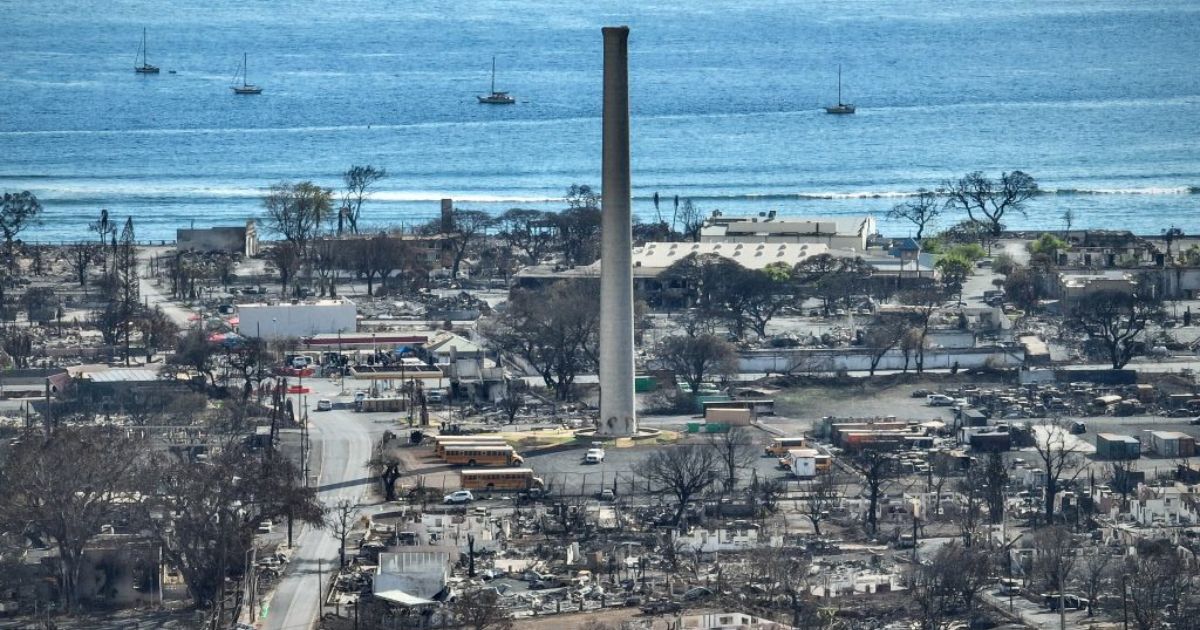In the wake of the devastating August 8th fire that ravaged Lahaina, Maui, and claimed the lives of at least 115 people, a comprehensive report by the University of Hawaii sheds light on mental health and trust in government.
These two critical challenges that will shape the immediate and long-term recovery efforts: the mental health of survivors and the imperative need for government transparency.
Report Suggests Mental Health And Trust In Government Are Major Challenges
Titled “After the Maui Wildfires: The Road Ahead,” this report brings together the insights of 16 experts from diverse fields such as economics, environmental science, public health, finance, and governance.
It highlights the profound and far-reaching health impacts of the disaster, extending beyond the tragic loss of lives and the immediate injuries suffered by many.
One of the foremost concerns emphasized in the report is the anticipated prevalence of post-traumatic stress and depression among survivors in the aftermath of the fire.
The trauma inflicted by such a catastrophic event can have lasting psychological effects, affecting the mental well-being of individuals who endured the disaster and its consequences.
This revelation underscores the urgent need for comprehensive mental health support and resources to aid those grappling with the emotional toll of the catastrophe.
In addition to the mental health challenges, the report underscores the critical importance of government transparency in the recovery process.
Public trust in government officials and institutions is pivotal in facilitating effective disaster response and long-term recovery efforts. The report highlights the potential erosion of trust in public officials, possibly stemming from perceived inadequacies in disaster response or communication during the crisis.
The devastation caused by the Maui wildfires has undoubtedly left a scar on the community, and the recovery process must prioritize addressing the emotional and psychological well-being of survivors.
Mental health services and counseling will be instrumental in helping individuals cope with trauma and depression, fostering resilience, and supporting the healing process.
Furthermore, rebuilding trust in government entities is equally vital for a successful recovery.
Transparency and effective communication are key components in regaining the confidence of the affected community. Government officials and agencies must actively work to bridge any gaps in trust by ensuring openness, accountability, and responsiveness in their actions.
The report’s findings serve as a sobering reminder of the holistic challenges that communities face in the aftermath of such a catastrophic event.
Recovering from a disaster of this magnitude is not merely a matter of rebuilding physical infrastructure but also of healing emotional wounds and restoring faith in governance.
It is anticipated that the report’s recommendations will guide policymakers and stakeholders in developing a comprehensive and compassionate approach to post-disaster recovery.
Allocating resources to mental health services, creating support networks, and prioritizing transparent governance will be key steps in addressing the unique challenges posed by the Maui wildfires.
As the community of Lahaina and Maui as a whole grapple with the long road to recovery, the insights offered by the University of Hawaii’s report can serve as a roadmap for healing and rebuilding.
By acknowledging the deep-rooted psychological impact of the disaster and the importance of trust in government, decision-makers can work towards a more resilient and united Maui in the wake of this tragedy.
In conclusion, the University of Hawaii’s report sheds light on the multifaceted challenges that Maui faces in the aftermath of the devastating wildfires.
It underscores the need for a comprehensive approach that prioritizes mental health support for survivors and rebuilding trust in government institutions. By addressing these challenges head-on, Maui can pave the way for a stronger, more resilient future.





















